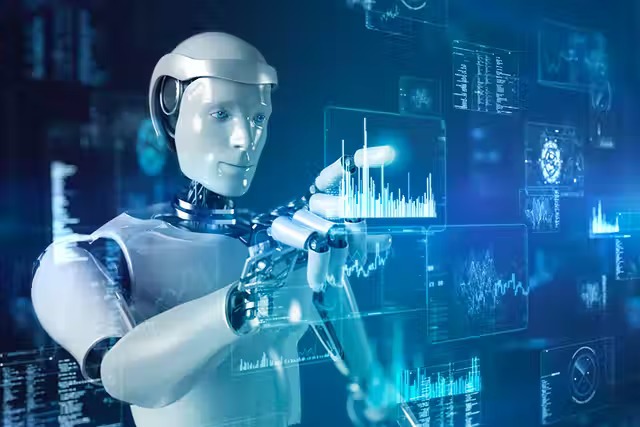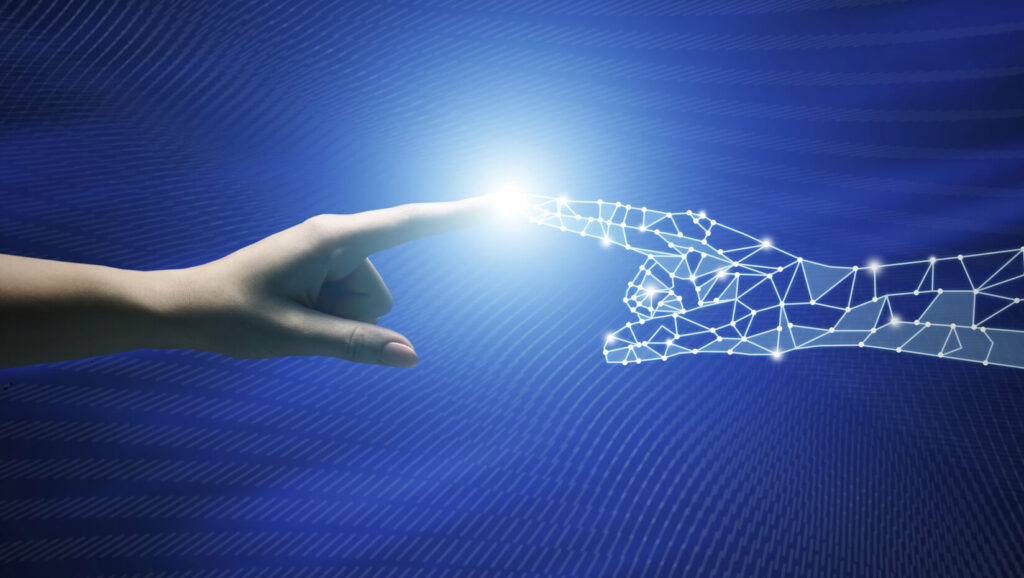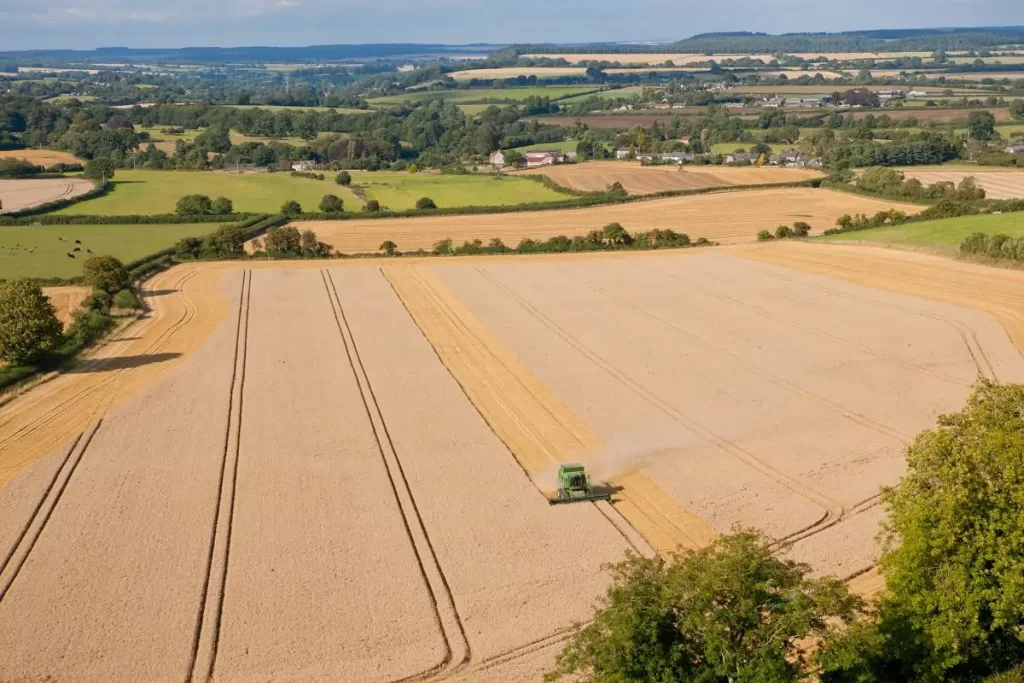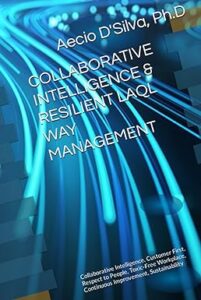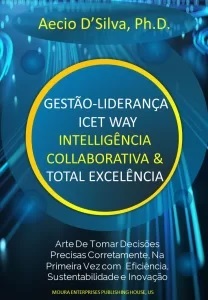Contents
- 1 Artificial Intelligence: Your new friend or your worst nightmare? How artificial intelligence may change our world in an unbelievable way.
- 2 By Prof Aecio D’Silva
- 3 AquaUniversity.com
- 4 What is Artificial Intelligence?
- 5 Intelligence?
- 6 Is Artificial Intelligence new?
- 7 Artificial intelligence – Your new friend or your worst nightmare?
- 8 “We need to innovate”
- 9 Who are the leaders of this revolution?
- 10 Artificial Intelligence will enable us to do incredible things, but we need to be aware that some major changes can happen.
- 11 What Is Our Team Currently Developing Using AI?
- 12 Conclusion
- 13 Food Production Spiral-Snail-Crescent System SSCS
- 14 Anagé – Bahia – Brazil
- 15 Books of Prof. Aecio D’Silva
Artificial Intelligence: Your new friend or your worst nightmare? How artificial intelligence may change our world in an unbelievable way.
By Prof Aecio D’Silva
AquaUniversity.com
Artificial Intelligence – For years, I have been using AI in data analysis and as an educator. This article is about how AI is and will continue to impact our lives in so many ways. . You may not have noted, but AI is already part of your day-to-day as you never imagine. Just ask how many times today you have done a Google search, used gps, or asked for help from Alexia all powered by AI! In reality, it’s practically impossible you are not using today an app, service, or product that is not moved or controlled by AI.
Artificial Intelligence is a technology that is growing at an exponential rate. The biggest players in the world such as Google, Microsoft, and IBM are investing millions or even billions of dollars into this technology, and they see it as the future. But is it really? A lot of people are concerned about what will happen if AI becomes too smart or if it takes over humanity completely. So, let’s look at what exactly artificial intelligence can do today so we can understand how we need to prepare for its impact on our lives tomorrow.
What is Artificial Intelligence?
Artificial intelligence (AI) is a broad term that refers to the field of computer science and engineering devoted to creating intelligent machines and human-like thinking, in contrast with the traditional approach of symbolic artificial intelligence (SAI).
AI learns from experience, rather than being programmed. AI is used in numerous areas such as robotics, language processing, game-playing, and decision making. In my specific areas of specialization, Continuous Improvements, Genetics, and Integrated Food Production, AI is intensely used. AI advances are often driven by publicly available tools and research.
Intelligence?
-
What is intelligence?
Intelligence is defined as the ability to learn from one’s environment, make decisions and solve problems. It can be natural or artificial, human or machine. Let’s look at the different types of intelligence:
-
What kinds of intelligence do we have?
As you could see in one of my books (The Power to Change Your Story) “although it is said that there are more than eight types of intelligence, let’s define the three most well-known: intellectual (this is one we deal with in this article), emotional and spiritual.
Intellectual intelligence (sometimes called intelligence on the left side of the brain) is associated with intellectual, rational, and analytical reasoning, as well as ability with numbers, problem-solving, and so on. Emotional intelligence (EI) can be defined “as the ability to understand and lead your own emotions and the people around you.”
On the other hand, although it is still a controversial subject, we also have the so-called spiritual intelligence (QS – which places our actions and experiences in a wider context of meaning and value, making us more effective in everything we do). Scientists have discovered that we have a “Point of God” in the brain, an area in the temporal lobes that makes us seek meaning and values in our lives. It is an area linked to spiritual intelligence or resilience.”
Is Artificial Intelligence new?
AI is not a new concept, in fact, it has been around for a while. AI is a general term that encompasses many diverse types of technologies and processes. In short, AI can be described as any technology that mimics human behavior or thought processes through the use of complex algorithms to solve problems.
There are also many distinct types of artificial intelligence including:
- Machine learning – involves algorithms being trained on data sets with the goal of improving performance over time
- Computer science – focuses on designing intelligent machines by writing code that enables them to perform tasks based on data fed into them by humans
- Artificial life – examines how living organisms interact with their environment using computer models
Artificial intelligence – Your new friend or your worst nightmare?
AI can be used for good or bad. Imagine a friend who’s completely devoted to you and wants to do everything they can to make your life better. Or imagine a nightmare that is constantly trying to harm you and everyone around you, including their own creator. Of course, most people want their AI friends to be more like the former than the latter, but this is not always possible.
It’s important that we know how artificial intelligence might change our lives in the future so that we know what kind of precautions we need to take before it becomes too big of an issue for us humans! There are already many ways AI has changed our everyday lives by doing things such as helping us find information faster than ever before (Google), driving cars without crashing (Tesla), and playing games against each other at superhuman levels (AlphaGo). In fact, there are so many applications out there right now that it would take ages just listing them all out one after another – so instead let’s focus on some examples of specific areas where Artificial Intelligence could potentially have detrimental effects on human society if left unchecked:
Artificial intelligence has the potential to change the world in an unbelievable way. But before you start feeling too optimistic about the future, it’s important to understand that AI could also have some detrimental effects on human society if left unchecked.
Here are some examples of specific areas where artificial intelligence may have negative consequences:
-Supply chain – AI will likely be able to take over many of the tasks currently done by humans in supply chains, including inventory management and customer service. This could lead to job losses as companies seek ways to cut costs and boost productivity.
-Healthcare – AI could also have a significant impact on healthcare systems around the world as it becomes more widespread. For example, AI could detect signs of disease earlier than humans can through tests like MRI scans or blood work—but only if we train it correctly! Otherwise, it might miss things that doctors would notice right away.
-Military – AI has already been used for military purposes for decades now (think drones), so there’s no doubt that it will continue being used in this area for years to come as well—and possibly even decades after that!
–Precision-Agriculture – AI used in Precision Agriculture (PA) is causing an unprecedented revolution in agribusiness. With the use of AI in PA, one can: estimate crop productivity, assess its nutritional status and vigor, determine water stresses and irrigation needs, detect pest and disease attacks, identify planting failures, determine, and monitor the stages of crop development, and many other things. However, as in other sectors, all this is only possible if AI-AP is trained correctly. Any information error can bring negative results to plantations.
Interesting facts…
AI is a computer program that can learn and think like a human. It makes decisions based on data, solves problems, learns on its own, and creates new things.
AI is used to make our lives easier by helping us with tasks such as driving cars or booking flights. This is possible because AI can learn from its mistakes and improve over time to get better results in the future.
“We need to innovate”
You may be thinking, “Wait, what? The world is going to change so much that we can’t even imagine it?”
Well, yes and no. The way we live will definitely change for the better. But there are some risks that come with this type of technology. We need to innovate and find ways to address these risks before they become a reality. Creativity, innovation, and continuous improvement will play a key role in overcoming AI risks and nightmares.
Who are the leaders of this revolution?
You need to know who the leaders of this revolution are.
According to Gartner’s Magic Quadrant for Data Science and Machine Learning Platforms, Google Cloud (including TensorFlow), Amazon Web Services (AWS), and Microsoft Azure have emerged as the frontrunners in delivering data science capabilities over cloud platforms.
Amazon is also leading a variety of other open-source machine learning initiatives such as MXNET, which was developed by researchers at the University of Washington, and DeepMind which has been integrated into Intel’s Xeon Phi processors. Microsoft has partnered with DeepMind on its work towards achieving human-level intelligence in machines using reinforcement learning algorithms. The partnership aims to build an intelligent assistant that can complete various tasks across different applications including email or calendar management on your mobile phone or computer running Windows 10 OS respectively
What are their strategies?
The big five technology companies are investing in AI, and they’re doing it by partnering with seemingly every company on the planet. Google has partnerships with Lyft and Walmart, while Amazon has deals with Domino’s Pizza and Kroger. Facebook has collaborated with partners like Spotify, Netflix, and Pinterest. IBM is working with Walmart to help them improve their supply chain management by using data from sensors on pallets that track their location during transit to reduce theft and delays in delivery time.
Microsoft Azure has partnered with Starbucks for its digital assistant platform Cortana. Apple has created a smart speaker powered by Siri called HomePod that features Apple Music integration along with its “Hey Siri” command phrase; this will allow users who subscribe within their ecosystem to access services like Shazam or Spotify through voice commands issued through Siri rather than using their fingers on an app screen (which can be harder if you don’t have good eyesight).
Artificial Intelligence will enable us to do incredible things, but we need to be aware that some major changes can happen.
AI will also change the way we work. AI is already being used by Amazon, Apple, and Google to recommend products to customers based on their previous buying history. In order for this kind of recommendation system to work well, it needs access to your entire history of purchases and browsing habits. This means that some companies will have access to all this data about you – which may be a little or q lot scary!
On the other hand, AI could help doctors diagnose diseases quicker than ever before through predictive analytics algorithms trained using machine learning methods such as deep learning or neural networks (see below). This could mean that we’ll have better healthcare in future years thanks to automation technology like artificial intelligence!
What Is Our Team Currently Developing Using AI?
Currently, among other projects, we are implementing an integrated model-of-intelligent food production technology for small farmers. We call the system a spiral-snail-crescent system SSCS. It is a high-profitability production scheme based on a growing spiral as we see in the shapes of galaxies or snails.
We are in the development phase of SSCS. Tests or practice-applied research to prove the concept and data collection are being done at the property of our team member, rural producer, Alex Brito in Anagé, Bahia. We are working on final proof-of-concept tests producing corn for silage, peanuts, potatoes, yuca, fish, and other cultivars all year round in weekly crops.
The strength of the snail system is profitability and constant return for producers. The weekly harvests start from the third month of cultivation and will continue to produce simulating the model of a growing spiral as we see in the shell shape of a snail.
How does AI get into this whole story? Well, all of this will be programmed and monitored using an app like those used in precision farming. That is, we are evaluating the system in the field, in real-life practice, and collecting data that is being used in the implementation of AI algorithms or Smart App. This app will be able to guide and program the entire snail system to the producer using the mobile phone. Later we will give you more information about SSCS and how this app may in the future be downloaded from Google or Apple Stores for mobile phones.
Conclusion
Artificial intelligence is no longer just a concept in the movies, it’s here and it’s real. The question that remains however is what will happen when these computers become self-aware? Will humans still have a place in this new world order? Only time can tell as we continue down the road toward an uncertain future where machines may rule over us all.
Artificial Intelligence can be a real game-changer, but it’s not a silver bullet. It’s important to remember that AI is just one tool in our bag of tricks. Sometimes it will be the perfect solution for a problem, but other times it won’t be able to compete with humans’ ability to think creatively or their intuition about how people will behave. Even so, we’re excited about what the future holds for us all! So, buckle tightly your belts and hold firm on this new hopeful wonderful journey! Whatever Will Be, Will Be (Que sera, sera)!!!
Food Production Spiral-Snail-Crescent System SSCS
Anagé – Bahia – Brazil
Books of Prof. Aecio D’Silva
